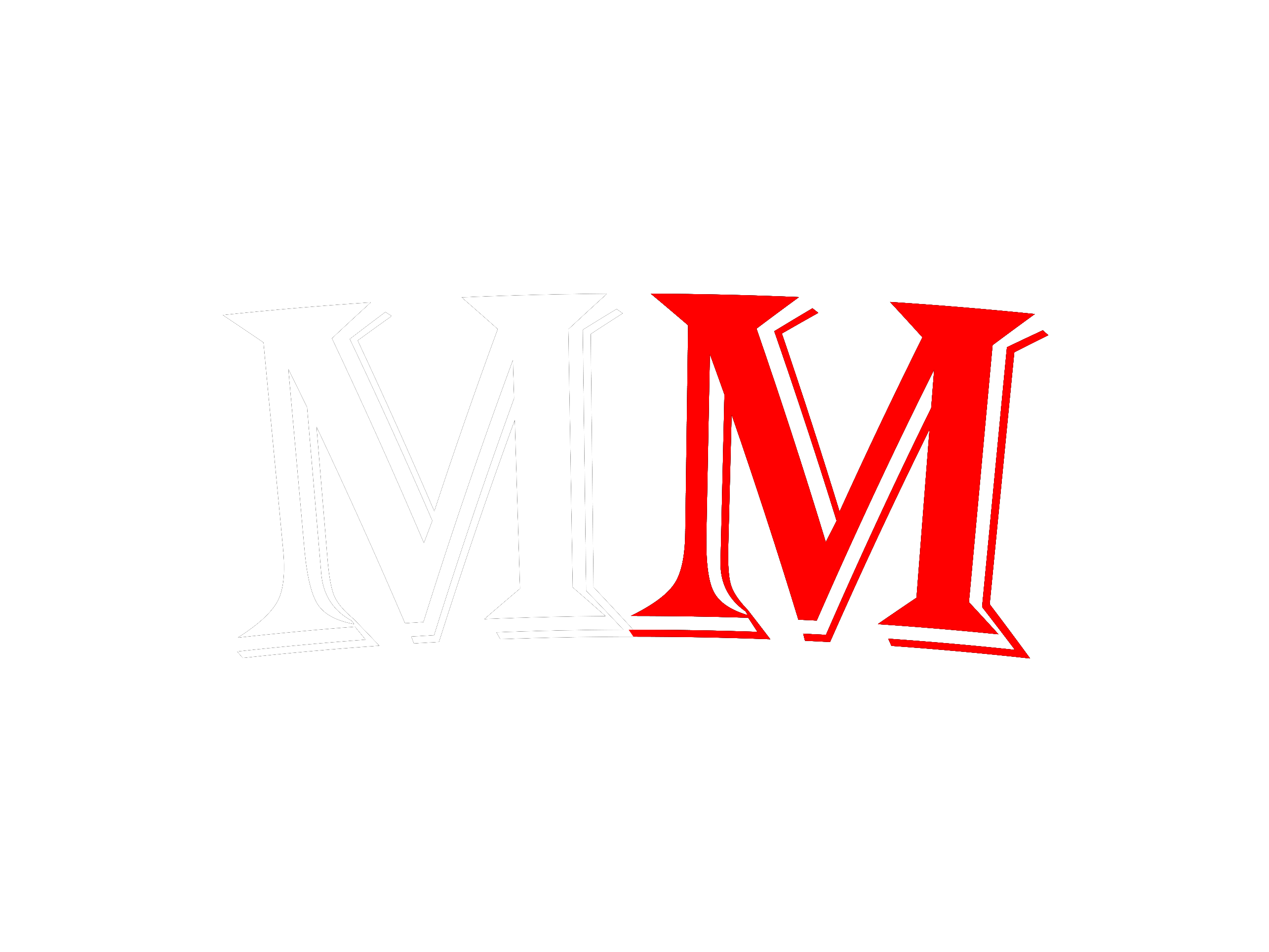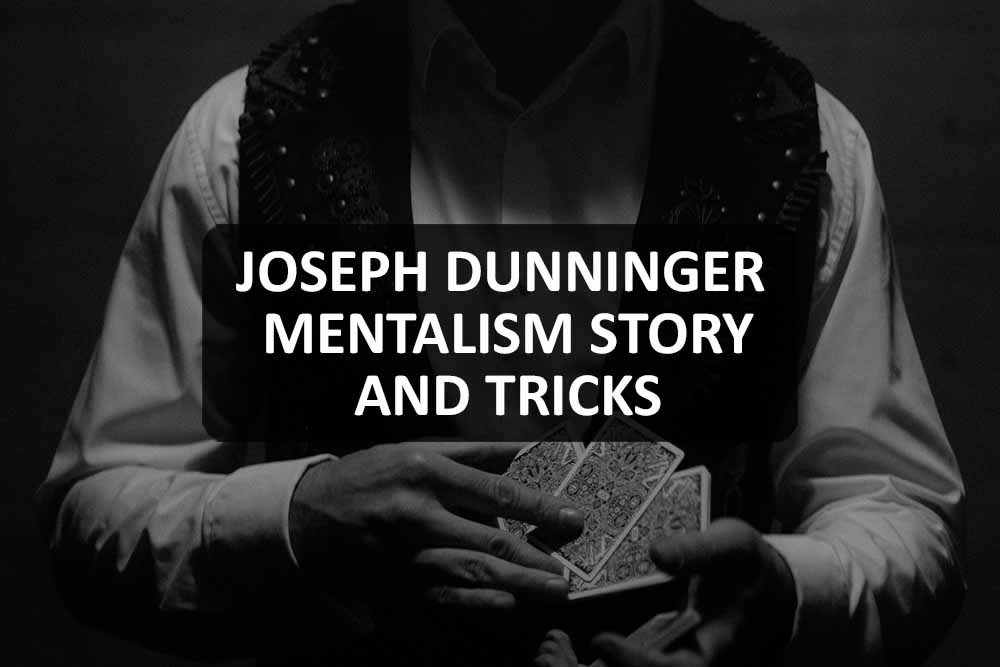Known as “The Amazing Dunninger”, Joseph Dunninger is considered one of the greatest mentalists of all time.
He was best known as the first mentalist to capitalize the use of commercial radio to promote himself.
In the years he was active in the mentalism communities, he became renowned as a master of showmanship and publicity. He was also considered a premiere mind-reader that made an impact in American show business history.
His career reached over seventy years and is a gold mine and an inspiration to modern mentalists.
Let’s take a walk down memory lane and learn about Joseph Dunninger – his mentalism story and tricks.
Joseph Dunninger in the Early Years
Born on April 28, 1892, in New York City, Joseph began his mentalism career at an early age. His fascination with magic began at the age of five, after seeing street magicians perform.
Being a prodigy, he taught himself tricks of the trade and started performing two years later. It was for a Masonic Club in New York where he called himself “Master Joseph Dunninger — Child Magician.”
From there, he was able to secure his first long-term engagement at sixteen at the Eden Musee in Coney Island. By this time, Dunninger specialized in sleight of hand. It wasn’t long after that he was recruited and signed by the Keith-Orpheum Vaudeville Circuit.
It was during this time that he became interested in mentalism. It was due to a two-person mind-reading act he witnessed during the tour.
Of course, being as clever as he was, Dunninger adapted the performance and turned it into a one-man mental show. His performance often involved reading the minds of his audiences, most of whom were celebrities.
His single-personal performance attracted a lot of attention, leading to increased demand in vaudeville houses and private engagements. At the age of seventeen, he performed in the homes of both Theodore Roosevelt and Thomas Edison as they were his avid fans. His mentalism abilities earned him several invitations from President Franking D. Roosevelt, which resulted in several demonstrations in the White House.
Dunninger went on to become the first person to successfully hypnotize a person on the radio. He also gained publicity by doing blindfold drives.
Joseph Dunninger’s Efforts Against Frauds
One of his advocacies was the debunking of fake mediums. Dunninger, because of his mind-reading performances, captured the attention of Harry Houdini and Howard Thurston.
Together, they started a movement against fraudulent mediums. They were ultimately responsible for exposing and causing the downfall of numerous charlatans. Dunninger, specifically, claimed that he can replicate all spiritual phenomenon through trickery — and this was something he was able to accomplish several times.
His book, Inside the Medium’s Cabinet, exposed the tricks used by mediums. The Indian rope trick was another act he debunked, showing how it could be done using camera tricks.
In the same year his book was published, Dunninger attended a séance presided over by Emerson Gilbert. When cases were filed against the latter, Dunninger gave testimony against him in court.
His belief that all unnatural phenomena could be explained and redone through tricks was so firm that he issued a challenge to any medium that could achieve any physical phenomena through psychic or supernatural means. He offered a reward if he could not replicate the same event or if it couldn’t be explained by natural means.
The reward was left unclaimed.
Joseph Dunninger as a Media Personality
Max Holden, a Scottish-born American magician and vaudeville performance artist, once said that Joseph Dunninger was the foremost magician and showman of their time. That was in 1937.
Less than a decade later, in 1943, Dunninger began appearing on radio. Despite being accomplished as an escapologist, magician, and mentalist, this was where his real strength lay. In September of the same year, his radio mind-reading presentation billed as “Dunninger the Master Mind” first aired and became an instant hit.
It led to sought-after shows and, eventually, Dunninger’s cross over to television five years later. The Floor Show, WNBQ-TV in Chicago’s first mid-week program, featured him along with Paul Winchell.
In the next five years, Dunninger continued to make his rounds in the media scene. He served as a technical adviser in the biopic film Houdini, which starred Tony Curtis in 1953. Other than the Great Houdini, he also remained friends with several notable personalities in the magic community, such as Francis Martinka and Tony Slydini.
His television appearance continued in the 50s and the 60s. Dunninger was also used to create a couple of recurring comedic characters during this era.
Johnny Carson portrayed a character called “The Amazing Dillinger” in his show. Soupy Sales, an American comedian was best known for his children’s TV show Lunch with Soupy Sales. A character brought to life in some of its featured comedy sketches. He was called “Gunninger the Mentalist” and was an homage to Dunninger.
He is also referenced in I Love Lucy — this was during an episode when Ricky gets a new booking, and Fred Mertz correctly predicts Lucy’s reaction. Mertz earns laughter from the audience when he declares, “Just call me Dunninger.”
Columbo, another popular show in the same era, also had a character refer to him. Jack Cassidy mention’s Dunninger’s name when he talks about a magic trick.
Joseph Dunninger: the Mentalist as an Author
More than performing mentalism acts, Dunninger also successfully published many articles and books between 1918 and 1979. Most were self-published, but others were distributed by the inventor Hugo Gernsback.
What’s more, he was a contributing writer to several magazines — among these were Mechanix Illustrated, Science and Invention, Popular Mechanics, Atlantic Monthly, and Fate.
Of the many friendships Dunninger maintained, the one with Walter B. Gibson, the author of The Shadow, lasted his entire lifetime. Gibson co-wrote several books with Dunninger — these were typically on subjects like magic, spiritualism, and psychic phenomena. They collaborated on his last book entitled “Dunninger’s Secrets”.
Joseph Dunninger Laid to Rest
After having a successful career spanning several decades, Dunninger retired in 1971. He was already in his late seventies and was suffering from Parkinson’s disease.
He recorded his final TV series for ABC, though it was no longer aired. On March 9, 1975, Dunninger passed in his Cliffside Park home at 82 years old.
Final Words
In the world of mentalism, there are several big names. Joseph Dunninger’s is one of them. With so many achievements under his belt, he remains an inspiration to other mentalists to this day.
Mentalism is a performance art that requires you to keep learning. It’s not just the tricks and techniques you have to acquire, but also its rich history.
So get to know more of the greats in mentalism — and use them to fuel your drive when things get tough. After all, it’s not the number of times you fall; it’s how many times you get up.

